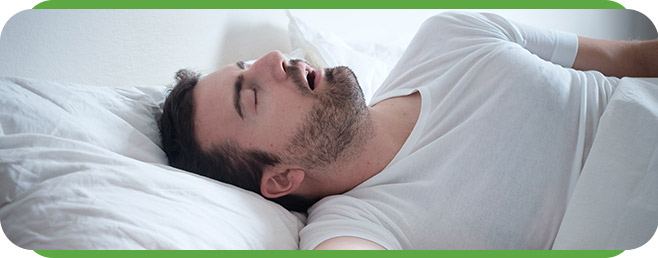Sleep Apnea Clinic Questions and Answers
If you are looking for a trusted sleep apnea clinic, come to Koala® Center For Sleep & TMJ Disorders today. Call our clinic to book an appointment. We serve patients from El Paso TX, Fort Bliss TX, Canutillo TX, Vinton TX and Northeast El Paso TX.


Table of Contents:
What Is Sleep Apnea?
What triggers sleep apnea?
What are the 3 types of sleep apnea?
Sleep apnea is a sleep disorder that is characterized by abnormal breathing during sleep. People with sleep apnea experience multiple pauses in breath while they sleep, which can occur dozens of times and even stop for up to a minute in severe cases. Sleep apnea is an incredibly prevalent condition, affecting the lives of more than 22 million Americans. Thankfully, there are medical clinics who dedicate their practice to treating sleep apnea, like Koala® Center For Sleep & TMJ Disorders.
Sleep apnea is a condition that affects how a person breathes when they sleep. Someone with sleep apnea can have multiple pauses in breathing throughout the night, ranging from only a few to over a hundred. Other common symptoms of sleep apnea include:
– Frequent, loud snoring
– Choking, snorting, or gasping during sleep
– Daytime sleepiness and fatigue
– Waking up with a sore throat or dry mouth
– Morning headache
– Restless sleep, nighttime awakenings, or insomnia
– Waking up at night feeling short of breath
– Going to the bathroom frequently during the night
Anything that blocks airflow or relaxes the throat muscles can trigger sleep apnea. The most common causes include:
– Gender — Men are over twice as likely to develop sleep apnea than women are, although after menopause, sleep apnea increases in women.
– Older Age — Although sleep apnea can occur at any age, it is more common in older people. It is most common in people in their 50s and 60s.
– Weight — The risk of sleep apnea is much higher in those who are overweight, and significantly higher in those who are obese.
– Genetics/Anatomy – Physical attributes can contribute to sleep apnea, including a small upper airway, a deviated septum, a long soft palate, a high tongue position, a small or receding jaw, and enlarged tonsils and adenoids. Additionally, men with a neck circumference greater than 17 inches (43.2 cm) and women with a neck circumference greater than 16 inches (40.6 cm) are more likely to develop sleep apnea.
– Smoking – People who smoke are three times more likely to develop sleep apnea than those who have never smoked.
– Alcohol — Anything that relaxes the throat muscles, including alcohol, increases the risk of sleep apnea. Alcohol acts as a muscle relaxant, which can exacerbate sleep apnea symptoms.
– Medications — Certain medications can cause sleep apnea. To find out if any of your medications might be causing sleep apnea, speak with your primary care physician.
– Other Medical Problems — Some medical conditions, such as diabetes and high blood pressure, are associated with higher rates of sleep apnea.
– Sleep Position — Although sleeping on your back is good for posture, it isn’t good for sleep apnea. Sleeping on your side is recommended to minimize symptoms.
– Sleep Deprivation — Not sleeping enough can worsen sleep apnea symptoms, and unfortunately, sleep apnea can affect sleep quality and duration, which may create a cruel cycle.
The three types of sleep apnea are:
– Obstructive sleep apnea (OSA) — Obstructive sleep apnea occurs when the airway at the back of the throat becomes physically blocked, which results in temporary pauses in breath.
– Central sleep apnea (CSA) — Central sleep apnea occurs when there is a problem with the signals sent from the brain for controlling muscles involved in respiration. This can lead to slower and shallower breathing.
– Mixed sleep apnea — Also referred to complex sleep apnea, mixed sleep apnea occurs when a person has both obstructive and central sleep apnea at the same time.
The underlying causes of the different types of sleep apnea are distinct. Therefore, there are important differences in the symptoms, causes, and treatments of both obstructive and central sleep apnea.
If you or someone you love has sleep apnea, or is exhibiting its symptoms, come to Koala® Center For Sleep & TMJ Disorders today for a professional evaluation and treatment. Our kind and compassionate professionals are dedicated to delivering the highest quality of service for each individual, at every visit. Call us today to book an appointment. We look forward to serving you!

Additional Services You May Need
▸ KoalaKIDZzz®
▸ Sleep Apnea
▸ Snoring
▸ TMJ Disorder
▸ Fatigue
▸ Sleep Disorders
▸ Weight Loss
▸ CPAP Alternative
▸ Oral Appliances




